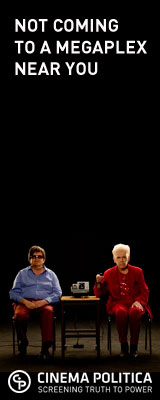February 19, 2010
Protocol and Protests -- Vancouver 2010
By
Nancy Bleck
One week ago the 2010 Olympic Games opened in Vancouver, HelloCoolWorld’s hometown. Our photographer and friend, Nancy Bleck, Slanay Sp’ak’wus, reflects on the Games First Nation’s focus.
Last Friday, day of the opening ceremonies of the Vancouver Olympic games I watched while some of my First Nations friends participated, and others protested.
During the ‘official’ opening, whether they knew it or not, the world was introduced to a basic lesson in First Nations protocol, or Chiyacx, the traditional law for how to do things in a good way. Those unfamiliar with Chiyacx, may have observed only what they see as ‘dancing and costumes’, what should be understood as regalia and ceremony. What happened was actually an historical first.
The Four Host Nations were incredibly gracious in offering a formal welcome to the world in a Coast Salish tradition. The games all take place in their territory. Welcoming the world to Vancouver in this traditional way, especially in light of an unjust Canadian history where genocide took place here not so long ago, and the living conditions for many indigenous peoples in Canada remain a violation of human rights, was an extremely generous act.
Personally, I thought it was highly appropriate that the Four Host Nations Chief's arrived at precisely the time of traditional welcome, and not a minute before. Skipping the 'Oh Canada!' theme song altogether (though I hear this was not done intentionally). For the first time in Olympic history First Nations Chief’s are being recognized as Heads of State, sitting alongside the Governor General and Prime Minister of Canada. But in BC we still remain on unceded territory. In the legal eyes of the Supreme Court of Canada, ‘British Columbia’ is in fact, a myth.
For me, a critical part of the opening was to see my friend and long time collaborator telalsemkin, siyam, Chief Bill Williams, being recognized and sitting centre stage in the eyes of world politics (keeping in mind that up until 1964, First Nations people were not even allowed to vote in Canada). And it made me smile from ear to ear that he was pictured throughout the celebrations more times than Prime Minister Harper for the three billion people watching.
Many dear friends who participated in the opening ceremonies felt much pride in showing the world the beauty and honour of who they are, and where they come from; that they have survived an insidious history, and the feeling that a positive new light has shone upon First Nation’s peoples in Canada was felt by many. I genuinely hope this goes a long way toward melting down the racism in this country. They really held themselves in honourable ways, and I felt great joy for the many friends I recognized in the opening ceremonies for having an opportunity to celebrate themselves.
An equally critical point of view (and victory for democracy in Canada), though much more difficult to filter through to the billions watching, were the demonstrators outside holding banners ‘No games on stolen land’. Close friends in another camp held steady to the message that the processes of colonization continue to this day, and have long lasting ill effects, including homelessness, poverty, addiction, suicide, racism, not to mention power and control over whole cultures and people on a global scale.
Colonization is a big word.
According to Taiaiake Alfred, Indigenous Professor at University of Victoria:
"Being colonized means that you are not your own person, and that what was formerly yours has become the subject of another’s desire and authority and had its meaning absolutely transformed. It is nothing less than the loss of control over who accesses your knowledge, your culture, your land, and your body—and for what purpose. Your world and your self are assimilated as property into the regime of another’s power." Arizona State University, lecture recorded March 23, 2009
As an artist and educator I care about culture, and my subject position here is not an easy one. I am a daughter of German immigrants, born to this land via the gateways of colonization. I am wary of adopting the anthropological practice of speaking on behalf of ‘Others', often in distorted scholastic scores, or over idealized tones. My belief is that voice is best coming from its own authenticity and aliveness: its own cultural survival, beauty and wealth of traditions.
I have no authority to speak culturally on behalf of an indigenous subjectivity, even as Slanay Sp'ak'wus, my Coast Salish ‘ninahalahan’ name (little or new name), that was given to me during the early years of the Uts’am/Witness project I co-founded with Chief Bill Williams and the late John Clarke. All I can talk about is what I see, from where I stand.
What I witnessed during the 10 years of that project was a serious longing of young First Nations people to have their culture given relevance in contemporary times, and a similar desire for an authentic experience of culture from the non-native participants on those journeys on Squamish Nation territory. And of course, when history is alive, and moving forward, it does not always look like what you expect.
What I have learned from Coast Salish people, is that within traditional culture knowledge is earned, and not given. Care is to be taken with what is shared, transferred and consumed.
So looking at these Olympics, in the context of a world engaged in the over-zealous practices of colonization, consumerism and globalization, careful steps are needed to ensure that the integrity, authenticity and sacredness of Coast Salish cultures, be they generously shared, also be generously respected, and not ‘assimilated as property’ for the dominant cultures.
What I would like to share, however, is an observation in what I see happening as a real division among First Nations friends over how to respond to the Olympics on ‘home and Native land’. And the difficulty here is that there can be no easy, straight and narrow way forward, rather the path may be more winding.
To all Canadians, moving out of denial and embracing careful listening are necessary steps; we have much to learn from an indigenous worldview well beyond the entertainment value of beautiful opening and closing ceremonies, or souvenir’s from the gift shop; well beyond the discomfort of displaced people and outraged protesters.
To friends involved in the Olympics, and to the ones protesting the games in the streets, deep respect. Deep respect to the dancers, drummers, singers and leaders at the opening ceremonies for welcoming the world with traditional protocol; I do not see it as ‘white-washing’ or ‘selling-out’, but of following traditional protocol passed down generation to generation from their ancestors as a welcoming people.
Deep respect to the ones in the streets for defending our basic human rights, freedom of speech, raising awareness around homelessness, the extraordinary costs of the games, arts and culture, and speaking out to environmental and social injustices.
Deep respect to the athletes who work hard, and who are caught in the middle of a much needed political discourse, not to mention the unfortunate ‘win / lose’ aspect of the games.
May oppositional forms of thinking surrounding the Olympics also be an opportunity to move out of binary thinking, and allow for an opening up of the imagination to create new visions for how to ‘see’ and move forward, beyond negative passions. The whole point is to re-imagine the world differently, beyond a ‘colonized imagination’, through the re-construction of socially creative assemblages and processes, placing emphasis on respect for differences. One that is inclusive and socially just; one the has the power to free thought from it’s stranglehold of either/or and return it back to it’s beauty and liveliness, opening up new possibilities for emergence and change.
Coming full circle, whether it was deliberate, accidental, or an act of the spirit world, I am gratified that no one in the world had to watch the Chiefs of the Four Host Nations sing “Oh Canada… on home and native land.”
Nancy Bleck, Slanay Sp’akwus
Tag(s):
Aboriginal,
Van2010,
First Nations,
Olympics
Recent Blogs by Nancy Bleck:
|
 |
 Nancy Bleck is an award-winning international artist working with photography, film, video, and cross-cultural collaboration. She was recently honoured with the YWCA ‘Women of Distinction' award in the category of Arts, Culture and Design, for her work on Uts'am - Witness, a project spanning 10 years.
Nancy Bleck is an award-winning international artist working with photography, film, video, and cross-cultural collaboration. She was recently honoured with the YWCA ‘Women of Distinction' award in the category of Arts, Culture and Design, for her work on Uts'am - Witness, a project spanning 10 years.
|








